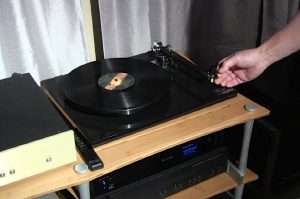
This holiday season, prevent a stress-induced burnout by being proactive about self-care. Photo: American Ratings Corporation (2016)
’Tis the season to be jolly, but for many people, the holidays are more synonymous with stress than merriment. From checking off your gift shopping list to getting your home ready to accommodate guests, the nonstop pace of the “holiday hustle” can eventually dim even the brightest of spirits. That’s why, in the interest of avoiding a yuletide meltdown, it’s important to be proactive about self-care in the weeks leading up to your seasonal celebration. Consider the following ideas for busting your stress buildup:
Practice simple stress-managing techniques. You may not realize it, but the power to alleviate stress is literally in the palm of your hand. For example, placing your palm to your forehead has a legitimate physiological effect. When you’re under stress, the reflex points located above your eyebrows trigger a “fight or flight” response, which causes the blood to leave this area of your brain and spread throughout your body. Placing your hand on your forehead encourages the blood to return to the brain, which helps calm the charged emotions flowing through your body and dissipate stress-related symptoms.
Another DIY technique for handling stress is visualization. Place your hand on the back of your head (the location of your visual cortex) and try to visualize the stress you’re experiencing. Take deep breaths and concentrate on the associated emotion for up to 30 seconds. Finally, lower your hand and think about the emotion once more. With practice, this handy exercise can help reduce stress quickly.
Take the “bite” out of unconscious tension. In addition to affecting your mood, stress is often expressed unconsciously, including while you sleep. Nocturnal clenching and grinding of the teeth is a common symptom of stress that can result in tooth and jaw pain, including conditions like TMJ. To alleviate the effects of this habit, consider getting a night guard, which protects the surfaces of your teeth from grinding and can even allay jaw strain caused by clenching. While a custom-made night guard from your dentist is ideal (as it’s designed to conform to your mouth’s unique shape), a generic one purchased from a drugstore is better than nothing.

One simple yet effective relaxation technique is listening to music on a high-fidelity format like vinyl LP. Photo: American Ratings Corporation (2016)
Find solace in music. Most people enjoy music, but not everyone realizes how therapeutic it can actually be. Doctors have even been known to prescribe music listening to help reduce blood pressure and improve digestion and sleep. To get the most out of your auditory experience, Craig Allison of Lavish Theaters recommends listening to a high-fidelity format played on good equipment. “These days, most people stream music online, but this is far from an ideal listening experience,” he explains. “Moving from the baseline of low-quality digital audio to a clean, high-quality digital or analog format is an equivalent lifestyle upgrade to moving from a diet of processed food to one of fresh, organic cuisine.” So, if you’re feeling the pressure of holiday stress, don’t underestimate the impact a little listening enjoyment can have on your mental health.
Prevent travel-related strains. For many people, traveling during the holidays is an unfortunate inevitability. According to Dr. Forest Ambridge of Santa Rosa Chiropractic Neurology Center, a big part of avoiding travel-related strains is maintaining proper posture. For example, when driving, you should adjust your seat so you’re as close to the steering wheel as comfortably possible, with your knees slightly higher than your hips. You should also get a back support device to reduce the risk of lower back strain. If you’re traveling by plane, place pillows or rolled-up blankets behind your lower back and neck to maintain the normal “S” curve of your spine while seated. Prop up your legs on a bag beneath your seat, and switch your position occasionally to improve circulation and avoid leg cramps.
Regardless of your mode of transportation, Dr. Ambridge recommends treating travel like an athletic event. Warm up before settling into a car or plane, and cool down after reaching your destination. Take a brisk walk to stretch your hamstring and calf muscles during bathroom breaks or layovers. By employing these practices, you can prevent the undue aches and pains that often result from lengthy travel.

If you’re looking for relaxation and relief, consider a traditional Thai body massage. Photo: American Ratings Corporation (2016)
Treat yourself to a Thai body massage. Thai massage employs a combination of passive stretching and gentle pressure applied with the hands, elbows, knees, and feet. By adjusting the skeletal structure, increasing flexibility, and relieving muscular and joint tension, this long-practiced technique provides an excellent stress relief solution.
Get back to the basics. While all of the above techniques can help alleviate holiday-related stress, it’s important to remember the basics of good physical and mental health. A nutritious diet and regular exercise are crucial, and it’s also beneficial to devote time each day for calm meditation. If you’ve fallen out of step with these wellness cornerstones, don’t wait for the New Year to get back on track—do it now, when you need them most. Here’s to a happy and healthy holiday season!
